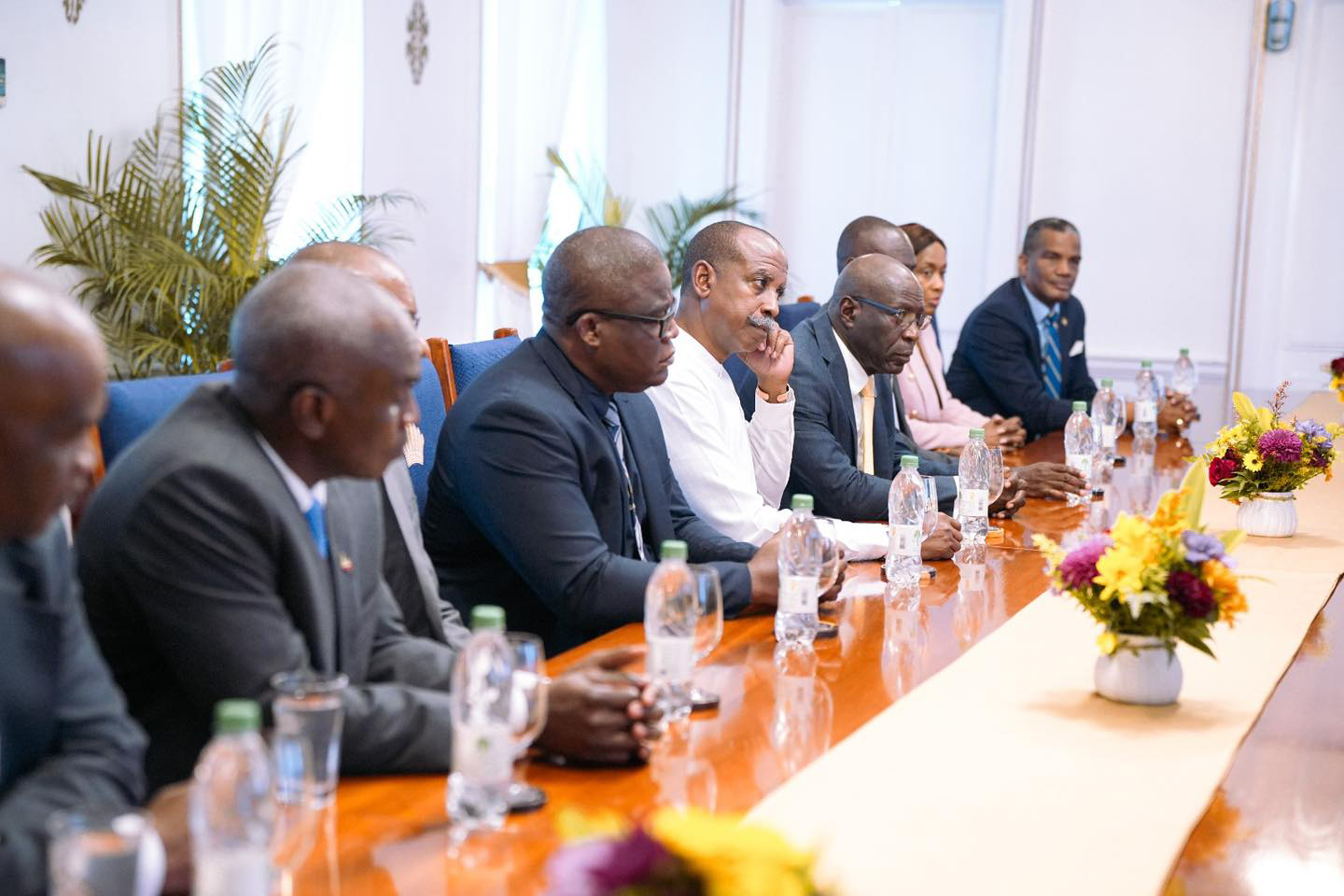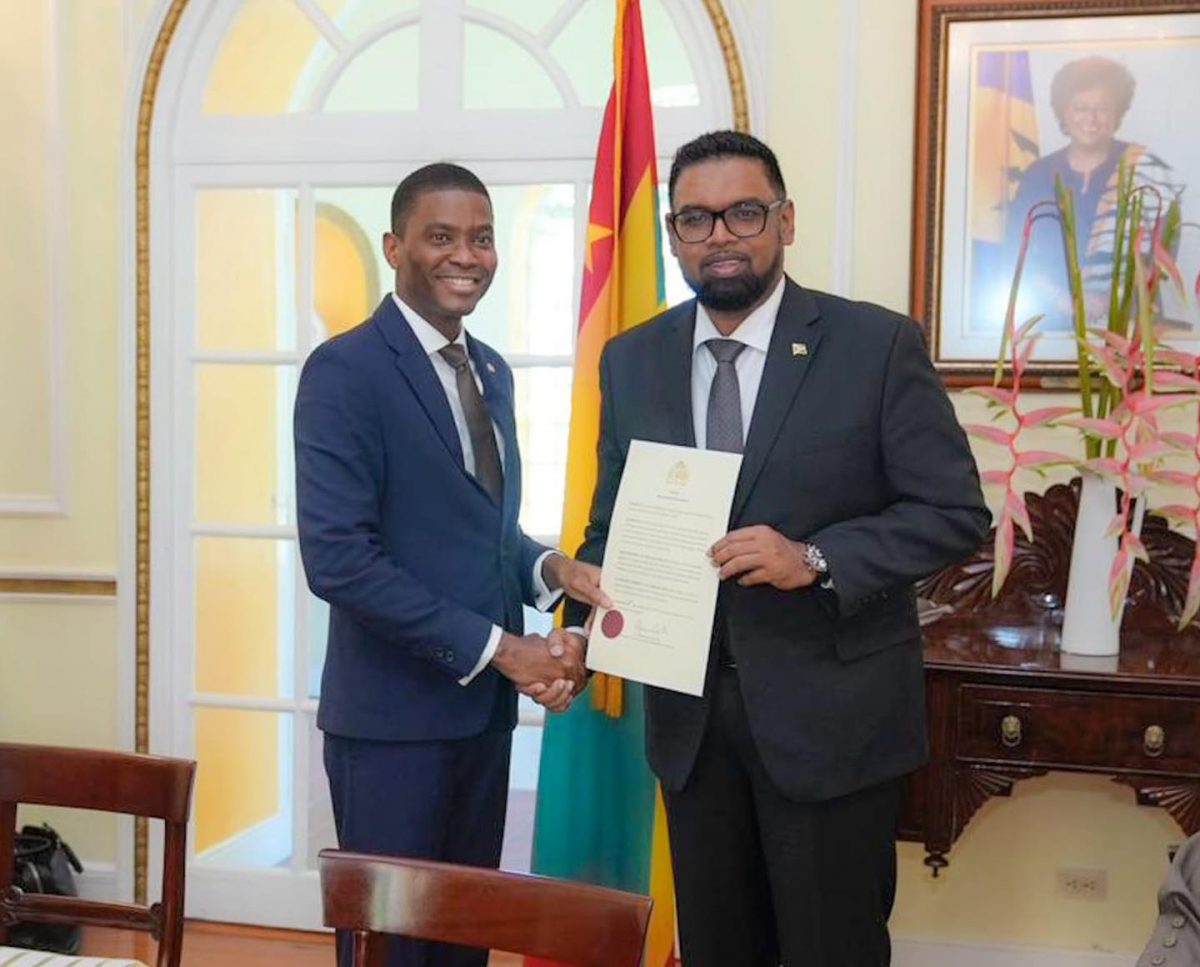As a member of the Regional Security System (RSS) Guyana should be able to rely on the principle of collective self defence if attacked by Venezuela.
Guyana joined the RSS last year and the treaty covers collective defence under Article 4. Since tensions have risen with Venezuela over its planned referendum on December 3rd and concerns over the possibility of it moving to annex the Essequibo region there has been no statement from the Government here or the RSS about the invoking of the collective defence clause enshrined in the treaty.
The Guyana Defence Force (GDF) itself has embarked on intensive defence diplomacy which has seen engagements with the Brazilian, French and Canadian armies in recent days. There was also an appreciation event by the GDF over the weekend at Camp Ayanganna which included the representatives of the United States, China, India and the United Kingdom. A team from the US Department of Defence is also due here. There has however been no reference to the RSS which comprises Antigua and Barbuda, Barbados, The Commonwealth of Dominica, Grenada, Saint Christopher and Nevis Saint Lucia, Saint Vincent and The Grenadines and Guyana.

On October 6th, President Irfaan Ali received a visit from leaders of the RSS who were in Guyana for their annual meeting.
During the engagement at State House, the Head of State emphasised the need for a regional approach to security in response to conflicts and disasters. There was no mention of the then brewing Venezuelan crisis.
The visiting delegation was led by Executive Director RSS, Chief of Staff of the Barbados Defence Force, Errington Ricardo Shurland and also included Heads of the Defence Forces and Police Forces from St Kitts and Nevis, Grenada, Antigua and Barbuda, Dominica, St Vincent and the Grenadines, St Lucia and Guyana (Chief of Staff, Brigadier Omar Khan and Commissioner of Police (ag) Clifton Hicken).
Minister of Home Affairs, Robeson Benn and National Security Advisor, Captain Gerry Gouveia were also at the meeting.
Also last month, Coast Guard Commanders of the RSS concluded a two-day Annual Conference here. At that meeting GDF, Coast Guard’s Commanding Officer, Commander David Shamsudeen, conveyed his elation at hosting the conference merely a year after Guyana’s membership in the RSS.
Armed attack
Under Article Four of the RSS Treaty, member states agree that an armed attack against one is an armed attack against them all.
According to Article 4(5): “The Member States agree that an armed attack against one of them by a third State or from any other source is an armed attack against them all, and consequently agree that in the event of such an attack, each of them, in the exercise of the inherent right of individual or collective self defence recognized by Article 51 of the Charter of the United Nations, will determine the measures to be taken to assist the State so attacked by taking forthwith, individually or collectively, any necessary action, including the use of armed force, to restore and maintain the peace and security of the Member State”.
Article 4(6) adds “Any such armed attack and all measures taken as a result thereof shall immediately be reported to the Security Council of the United Nations. Such measures shall be terminated when the Security Council has taken the measures necessary to secure and maintain peace in the Member State”.
Under Article 4(4) the Member States shall consult whenever, in the opinion of any of them, the democratic institutions, territorial integrity, political independence or security of any of them is threatened.
Article 4(1) says that the purposes and functions of the RSS are to promote co-operation among the Member States in the “prevention and interdiction of traffic in illegal narcotic drugs, in national emergencies, search and rescue, immigration control, fisheries protection, customs and excise control maritime policing duties, natural and other disasters, pollution control, combating threats to national security, the prevention of smuggling, and in the protection of off-shore installations and exclusive economic zones”.
In March last year, member countries of the RSS agreed to sign a protocol for Guyana’s accession, according to the Office of the President.
President Ali was in Belize for the 33rd inter-sessional meeting of CARICOM heads where RSS member states who were present signed the protocol.
“The RSS is an international agreement for the defence and security of the eastern Caribbean region with future expansion planned with South America. It sets out to preserve the peace and stability of the region by delivering world-class, professional, effective and efficient services through cooperative engagement with partner nations, the security sector and the peoples of the region,” the Office of the President had said in March last year.
Barbadian Prime Minister Mia Mottley also made the announcement on her Facebook page in March last year.
She said “Member countries of the Regional Security System (RSS) have agreed to sign a protocol to the treaty that established the RSS for the accession of the Cooperative Republic of Guyana. While at the Inter-sessional in Belize, all of the Heads of Government of member states who were present signed the protocol. Once the Heads of the remaining members sign the protocol, Guyana will be able to join the RSS. This is another example of regional cooperation and integration in action.”
According to its website, the RSS was created out of a need for a collective response to security threats, which were impacting the stability of the region in the early 1970s and 1980s. In October 1982 Antigua & Barbuda, Dominica, St Lucia and St Vincent and the Grenadines signed a Memorandum of Understanding (MOU) with Barbados to provide for “mutual assistance on request”.
St. Kitts and Nevis joined after gaining independence in September 1983 and Grenada in January 1985.





